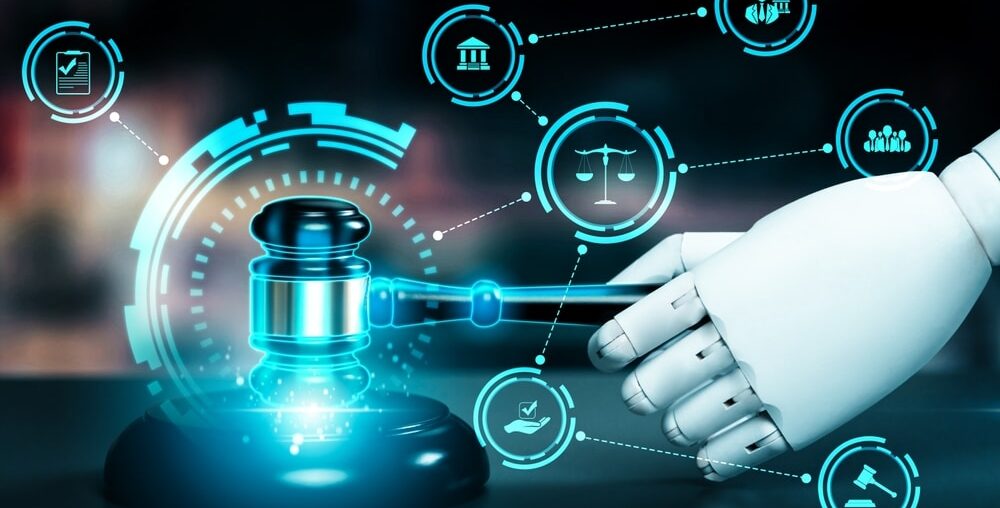The legal industry has always been rooted in tradition, with long-established processes and methodologies. However, as technology continues to advance, the legal sector is experiencing a significant transformation, and Legal AI (Artificial Intelligence) is at the forefront of this change. From automating routine tasks to providing insights for complex cases, Legal AI is reshaping how legal professionals operate Legal Assistant. This article explores the key ways in which Legal AI is revolutionizing the legal industry, its benefits, challenges, and its potential to improve access to justice.
What is Legal AI?
Legal AI refers to the use of artificial intelligence technologies to assist in legal practices. This can range from machine learning algorithms that analyze legal data to natural language processing (NLP) models that read and interpret legal documents. The primary objective of Legal AI is to increase efficiency, reduce human error, and improve decision-making in legal processes.
Legal AI can be applied in various aspects of the legal industry, including contract analysis, document review, legal research, predictive analytics, and even in litigation support. AI tools in the legal domain are designed to handle complex data analysis, automate repetitive tasks, and provide insights that would traditionally require significant human effort.
Key Applications of Legal AI
1. Document Review and Contract Analysis
Legal professionals spend a substantial amount of time reviewing and analyzing contracts and legal documents. In traditional practices, this process can be time-consuming and prone to human error. However, with the help of AI-driven document review tools, much of this work can be automated.
AI algorithms can analyze vast amounts of documents in a fraction of the time it would take a human. These tools can identify key clauses, suggest modifications, and flag potential risks, enabling lawyers to focus on higher-value tasks such as strategy and negotiation. Tools like Kira Systems, Riverview Law, and Luminance leverage AI to assist lawyers in efficiently reviewing contracts, highlighting issues like non-standard clauses or compliance risks.
Additionally, AI-powered platforms use natural language processing (NLP) to identify terms, conditions, and legal language that may be critical to a case. This reduces the burden of manual review, allowing lawyers to improve accuracy and speed.
2. Legal Research
Legal research is another area where AI is making a significant impact. Traditionally, legal research involves sifting through case law, statutes, and regulations to find relevant precedents. AI can streamline this process by analyzing large databases of legal information and providing insights that might have taken a human researcher much longer to find.
AI legal research tools, such as ROSS Intelligence and LexisNexis, can quickly scan through legal databases and return relevant case law, statutes, or precedents. By using machine learning algorithms, these platforms can also improve over time, learning the types of cases or issues a lawyer typically searches for, which results in more accurate and tailored results.
This ability to process vast amounts of data efficiently makes AI an invaluable tool for lawyers, who would otherwise need to sift through hundreds or thousands of legal texts. Legal AI enables them to stay on top of recent legal developments, ensuring they have access to the most up-to-date information.
3. Predictive Analytics and Case Outcome Predictions
One of the most exciting applications of Legal AI is in predictive analytics, where AI is used to forecast the outcome of legal cases based on historical data. By analyzing past cases, decisions, and trends, AI systems can provide insights into the likely success of a case, helping lawyers make better-informed decisions about case strategy.
Predictive tools can evaluate the strength of a case based on factors such as jurisdiction, past rulings, and the experience of judges. For example, platforms like Premonition and Lex Machina can provide data-driven insights on which lawyers or firms are most likely to succeed in specific types of cases.
These tools can also help clients by giving them a more accurate picture of potential legal outcomes, which could influence their decision to settle or proceed with litigation.
4. Litigation Support and E-Discovery
In the discovery phase of litigation, lawyers must review enormous amounts of evidence, including emails, documents, and other digital communications. This process, known as e-discovery, can be both time-consuming and costly. AI can automate much of this process by using machine learning algorithms to review documents and highlight relevant information, reducing the time required to sift through large volumes of data.
Tools like Relativity and Logikcull are examples of AI-powered e-discovery platforms that can quickly analyze and categorize documents. By identifying key documents or communications that might have been missed in manual reviews, these platforms ensure that critical evidence is not overlooked. Additionally, AI tools can help lawyers identify patterns in large datasets, providing valuable insights into the case.
Benefits of Legal AI
1. Increased Efficiency
AI can significantly improve the efficiency of legal processes. By automating repetitive tasks, such as contract review, legal research, and document analysis, lawyers can focus on higher-level tasks that require expertise and judgment. This can lead to faster turnaround times for clients and greater productivity within law firms.
2. Cost Reduction
Legal AI helps reduce costs by automating tasks that would typically require human labor. With the ability to process and analyze large volumes of data quickly, AI reduces the time needed to complete legal tasks, leading to lower costs for clients. This is particularly beneficial for clients who may not have the financial resources to pay for lengthy legal processes.
3. Improved Accuracy and Reduced Human Error
AI can minimize human error in legal tasks by using algorithms designed to process data without the biases or mistakes that humans might make. By relying on machine learning and natural language processing, AI can provide more accurate insights and reduce the likelihood of overlooking important details in legal documents or research.
4. Enhanced Access to Justice
Legal AI can help make legal services more accessible, especially for individuals and businesses that may not be able to afford traditional legal fees. AI-driven legal platforms, such as DoNotPay, offer a more affordable way to access legal services, ranging from generating simple legal documents to providing AI-powered legal advice. By automating the provision of basic legal services, AI is democratizing access to legal resources and enabling underserved populations to better navigate the legal system.
Challenges of Legal AI
While Legal AI offers numerous benefits, there are challenges that need to be addressed for its widespread adoption.
1. Data Privacy and Security
Legal data is highly sensitive, and the use of AI to process this information raises concerns about data privacy and security. Law firms and legal professionals must ensure that they use AI tools that comply with strict privacy regulations to safeguard client information. Additionally, AI systems must be secure against potential breaches that could compromise confidential legal data.
2. Ethical Concerns
There are ethical concerns regarding the use of AI in legal decision-making. For instance, there are questions about the transparency of AI algorithms and the potential for bias in the data used to train these systems. Legal professionals must ensure that AI tools are used in a manner that is fair and just, and that they do not perpetuate existing biases or unfair practices in the legal system.
3. Job Displacement
While Legal AI improves efficiency and reduces costs, there are concerns about the displacement of legal jobs. Tasks such as document review and legal research, traditionally performed by paralegals or junior lawyers, may become automated, leading to job reductions in the legal industry. However, many experts argue that Legal AI will simply change the role of lawyers, requiring them to focus on more complex and strategic aspects of the profession.
Conclusion
Legal AI is undeniably transforming the legal landscape, bringing significant advancements in efficiency, accuracy, and accessibility to the industry. By automating routine tasks, improving legal research, and offering predictive analytics, AI is reshaping how legal professionals approach their work and interact with clients.
Despite the challenges related to data security, ethics, and job displacement, the potential of Legal AI to revolutionize the industry is clear. As the technology continues to evolve, it is likely that we will see even more innovative applications in the future, further improving access to justice and transforming how legal services are delivered.
In conclusion, Legal AI is a powerful tool that promises to streamline legal processes, enhance productivity, and ultimately reshape the future of the legal profession.



